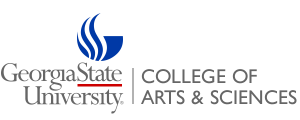courses taken
- CSc 1301 (PRINCIPLES OF COMPUTER SCI I)
- In introduction to the discipline of computer science. Computer programming is the primary focus of the course, with secondary focus on a breadth of computer science topics. These topics include algorithmic foundations, hardware concepts, virtual machine concepts, software systems, applications, and social issues.
- CSc 1302 (PRINCIPLES OF COMPUTER SCI II)
- Fundamental principles of computer programming. Expressions, procedures, variable types, data, input/output. Emphasis on structure and clarity as well as correctness.
- CSc 2510 (THEOR FOUNDATIONS OF COMP SCI)
- This course covers the basic theoretical foundations required to study various sub-disciplines in computer science. Topics include: propositional and predicate logic with applications to logic programming, database querying, and program verification; induction and its application in proving correctness and termination of programs; recurrence relations, combinatorics, and graph theory with applications to analysis of algorithms; sets, relations, and functions and their applications in databases, functional programming, and automata.
- CSc 2720 (DATA STRUCTURES)
- Basic concepts and analysis of data representation and associated algorithms, including linerarly-linked lists, multi-linked structures, trees, searching, and sorting.
- CSc 3210 (COMPUTER ORG & PROGRAMMING)
- This course covers the basic theoretical foundations required to study various sub-disciplines in computer science. Topics include: propositional and predicate logic with applications to logic programming, database querying, and program verification; induction and its application in proving correctness and termination of programs; recurrence relations, combinatorics, and graph theory with applications to analysis of algorithms; sets, relations, and functions and their applications in databases, functional programming, and automata.
- CSc 3320 (SYSTEM-LEVEL PROGRAMMING)
- An introduction to programming at the level of the operating system. Topics include editors, system calls, programming tools, files, processes, interprocess communication, and shells.
- CSc 4210 (COMPUTER ARCHITECTURE)
- Logic design, combinatorial and sequential circuits, input-output devices, memory, processors, controllers, parallel architectures, bit-slicing, reduced instruction sets.
- CSc 4320 (OPERATING SYSTEMS)
- Introduction to operating systems concepts. Topics may include multiprogramming, resources allocation and management, and their implementation.
- CSc 4370 (WEB PROGRAMMING)
- The course introduces the student to programming techniques required to develop Web applications. Topics include: HTML forms, JavaScript, Servlets and Java Server Pages, PHP and MySQL, Web access to Oracle databases, and XML.
- MATH 2211 (CALCULUS OF ONE VARIABLE I)
- Limits and Continuity, Differentiation, Mean Value Theorem for Derivatives; applications of differentiation; definition of the integral; Fundamental Theorem of Calculus; applications of integration to area.
- MATH 2212 (CALCULUS OF ONE VARIABLE II)
- Applications and techniques of integration; transcendental and inverse trigonometric functions; polar coordinates; infinite sequences and series; indeterminate forms; improper integrals.
- MATH 2215 (MULTIVARIATE CALCULUS)
- Real-valued functions of several variables, limits, continuity, differentials, directional derivatives, partial derivatives, chain rule, multiple integrals, applications.
- MATH 2641 (LINEAR ALGEBRA I)
- Theory and applications of matrix algebra, vector spaces, and linear transformations. Topics include linear equations and matrices, invertible matrices, determinants, vector spaces, subspaces, bases, eigenvalues and eigenvectors.
- MATH 3030 (MATH MODELS FOR COMPUTER SCI)
- Elements of mathematical modeling including: multivariate functions, probability, distributions of random variables, sampling, statistical inference, operators, vector analysis; elements of linear algebra.
